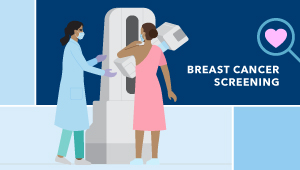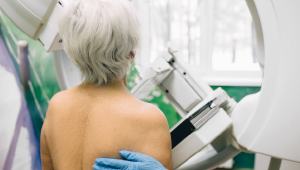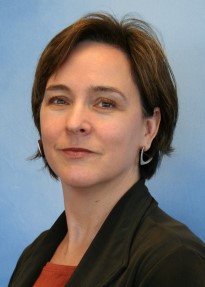Ellen O’Meara, PhD
Biography
Ellen O’Meara, PhD, came to Kaiser Permanente Washington Health Research Institute in 2009 with an array of scientific interests. The common thread across her more than two decades of research experience is studying the epidemiology of common diseases in adults, such as cancer, Alzheimer's, and cardiovascular disease.
Due to her strong interests in screening for disease and outcomes after diagnosis, Dr. O’Meara co-directs the Kaiser Permanente Washington-led Statistical Coordinating Center for the Breast Cancer Surveillance Consortium—a national network of breast imaging and breast cancer researchers. One of her goals is to find ways to optimize breast cancer screening—that is, to find the best balance of benefits and harms in subgroups of women based on their risks.
Dr. O’Meara’s other professional activities include memberships in the Society for Epidemiologic Research and the American Society of Preventive Oncology.
Research interests and experience
-
Cancer
Cancer screening and surveillance; breast cancer
-
Aging & Geriatrics
Dementia and cognition; age-related disability
-
Cardiovascular Health
Stroke; heart disease
Recent publications
Shiffman D, O'Meara ES, Rowland CM, Louie JZ, Cushman M, Tracy RP, Devlin JJ, Psaty BM. The contribution of a 9p21.3 variant, a KIF6 variant, and C-reactive protein to predicting risk of myocardial infarction in a prospective study. BMC Cardiovasc Disord. 2011 Mar 15;11:10. PubMed
Zakai NA, Lange L, Longstreth WT Jr, O'Meara ES, Kelley JL, Fornage M, Nikerson D, Cushman M, Reiner AP. Association of coagulation-related and inflammation-related genes and factor VIIc levels with stroke: the Cardiovascular Health Study. J Thromb Haemost. 2011 Feb;9(2):267-74. doi: 10.1111/j.1538-7836.2010.04149.x. PubMed
Zakai NA, Lange L, Longstreth WT Jr, O’Meara ES, Kelley JL, Fornage M, Nickerson D, Cushman M, Reiner AP. Association of coagulation and inflammation related genes and factor VIIc levels with stroke: the Cardiovascular Health Study. J Thromb Haemost. 2011 Feb;9(2):267-74. doi: 10.1111/j.1538-7836.2010.04149.x. PubMed
Aguilar MI, O'Meara ES, Seliger S, Longstreth WT, Hart RG, Pergola PE, Shlipak MG, Katz R, Sarnak MJ, Rifkin DE. Albuminuria and the risk of incident stroke and stroke types in older adults. Neurology. 2010 Oct 12;75(15):1343-50.
Kumar R, Seibold MA, Aldrich MC, Williams LK, Reiner AP, Colangelo L, Galanter J, Gignoux C, Hu D, Sen S, Choudhry S, Peterson EL, Rodriguez-Santana J, Rodriguez-Cintron W, Nalls MA, Leak TS, O'Meara E, Meibohm B, Kritchevsky SB, Li R, Harris TB, Nickerson DA, Fornage M, Enright P, Ziv E, Smith LJ, Liu K, González Burchard E. Genetic ancestry in lung function predictions. N Engl J Med. 2010 Jul 22;363(4):321-30. doi: 10.1056/NEJMoa0907897. Epub 2010 Jul 7. PubMed
Murray ET, Diez Roux AV, Carnethon M, Lutsey PL, Ni H, O'Meara ES. Trajectories of neighborhood poverty and associations with subclinical atherosclerosis and associated risk factors: the Multi-Ethnic Study of Atherosclerosis. Am J Epidemiol. 2010 May 15;171(10):1099-108. Epub 2010 Apr 27. PubMed
Snitz BE, O'Meara ES, Carlson MC, Arnold AM, Ives DG, Rapp SR, Saxton J, Lopez OL, Dunn LO, Sink KM, DeKosky ST; Ginkgo Evaluation of Memory (GEM) Study Investigators. Ginkgo biloba for preventing cognitive decline in older adults: a randomized trial. JAMA. 2009;302(24):2663-2670. PubMed
Mukamal KJ, Pai JK, O'Meara ES, Tracy RP, Psaty BM, Kuller LH, Newman AB, Yende S, Curhan GC, Siscovick DS, Rimm EB. CRP gene variation and risk of community-acquired pneumonia. Respirology. 2010 Jan;15(1):160-4. Epub 2009 Nov 23. PubMed
- ← Previous
- 1
- 2
- 3
- 4
- 5 (current)
- Next →
Research

Improving cancer prevention and early detection
How KPWHRI is contributing to better cancer screening and better outcomes for patients.
Research

Roundup of 3 recent studies on breast cancer screening
New research spotlights overdiagnosis, MRI before surgery, and a new way of predicting breast cancer risk
VOICE STUDY

Understanding young adults’ experiences with cancer
The VOICE study aims to improve the health and health care of people who had cancer as adolescents and young adults.
Cancer screening

Catching breast cancers when mammograms are limited
New study calculates risk-based approach to detect the most cancers with the fewest exams.



